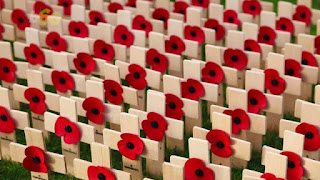The other day I was talking with a friend about exercise, with the discussion circling around the pros and cons of walking versus running. As someone with pretty bad knees, I am naturally biased toward walking, and preferably on a shock-absorbent treadmill. That being said, we talked about how the preference of one method versus the other usually depended on what the person wanted to get out of that particular exercise. Running is better cardio but doesn't last as long, while a walk can be for hours on end and build up stamina, though the calorie burn is not exactly the same. Of course, at some point my thoughts drifted to writing.

Often when we write, we are mission-driven. I am writing right now because I want to have this blog entry done by Monday. Other times I sit down and want to complete the latest chapter in my manuscript, or perhaps flesh out some ideas for a future story, or maybe - just maybe - I just want to write for the sake of creating. Whatever the case may be, I think it's important to examine these things in terms of what we gain from each task so we understand the benefits and tradeoffs of each one.
I usually compare writing for writing's sake as the equivalent of going for a walk. We never have to go for a walk; we do it because we want to get some fresh air, stretch out a little, see new things or just be outside for a while. Yes, it's good exercise since it builds up our endurance and we can go on longer and longer walks, but the benefits are only witnessed slowly, with us getting healthier without noticing it. When we write for the enjoyment of writing, we might never create anything amazing, but we exercise those writer parts that, with regular stretching and motion, become stronger over time.
On the other side of the pendulum's swing there are flash-fiction writing exercises. You sit with paper and pen or keyboard in front of you, someone says, "Your first line is 'I saw the weirdest thing today...', and START!" and you write for the next fifteen minutes nonstop. This is the hard run - yes, a hard run. You are forcing yourself to write even when you are not sure what to write about, how to present it, or whether time will allow. When this is done as a group writing exercise, people are literally grunting in exasperation by the last few minutes. The definitive cardio of the writing world, this will show you how you can sometimes exceed those self-imposed limits you tie around yourself, and once the time is up, you will take a deep breath and say, "Wow, I freaking did that!" (And you might cramp up a little.)
Ultimately, I think the important part of writing is to find that middle ground that you are comfortable with - the jogging pace. We set out to complete a writing task, block out a reasonable amount of time, and just start. Whether it is completing a short story, filling out a chapter, or getting a poem just right, we promise ourselves we will go the distance and we live up to our word. The more jogging we do as writers, the more we expand ourselves and our capacity to perform. Occasionally we are tested because we are not inspired, stuck on a chapter, or just not feeling in that writing place, but as we get used to flex our writer's jogging muscles, we find that the act itself helps put us into the right mindset, and away we go.
As a writer, I always recommend two things. First, find your own pace. Combine a few sprints with a few walks, but see where your pendulum finally levels off and work from there. Second, don't be afraid to push yourself a little further - that's where the growth is. You'll discover more about yourself when you go past your expectations, so give it a shot.
Oh - as always, don't forget to stretch first.








